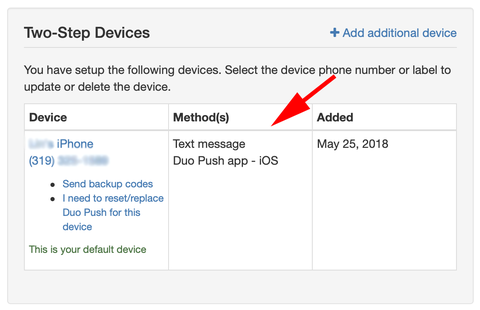Installing the AnyConnect Client How to download, install, and configure the Cisco AnyConnect client. Note: Mac OS 10.8 users will need to disable the Gatekeeper feature of Mountain Lion in order to install the AnyConnect client. Gatekeeper can be re-enabled after the initial installation and launching of the application. Please use Cisco Anyconnect. Follow this link for how to install and use Cisco AnyConnect. Once connected to VPN, search and launch Remote Desktop Connection. Type in your computer number in the form engr-d-coeXXX-YZ.iowa.uiowa.edu. Connections to the UI Anywhere VPN will require Two-Step Login authentication. Log into the VPN with Cisco AnyConnect and enter “push” in the “Second Password:” field to receive a push notification to the Duo Mobile app on your phone or other device (or review alternative authentication methods). Cisco AnyConnect v4 Client/Cisco VPN/UI Anywhere - Virtual Private Network (VPN) Service About Software. Vendor: Cisco Systems Inc. Cisco AnyConnect provides reliable and easy-to-deploy encrypted network connectivity from any Apple iOS by delivering persistent corporate access for users on the go. Whether providing access to business email, a virtual desktop session, or most other iOS applications, AnyConnect enables business-critical application connectivity.
- Cisco Anyconnect Download Windows 10
- Download Cisco Anyconnect Windows 10 64 Bit
- Install Cisco Anyconnect
- Uiowa Cisco Anyconnect App
- Cisco Anyconnect Vpn Install
Table of Contents
Installing and using the Cisco AnyConnect Virtual Private Network (VPN) Client
In order to connect to the Remote Data Analysis server when not on the University of Iowa network, you must use the University's VPN. To install the Cisco AnyConnect VPN client, follow these steps:
- Log in to the ITS Software Download site: http://helpdesk.its.uiowa.edu/software/signin.htm
- Select Cisco AnyConnect VPN Client.
Note: If you are not able to sign in to software download site or do not see Cisco AnyConnect VPN Client as an available download option, please contact Alex Sukalski. - Select the appropriate installer for your operating system.
- When the download is complete
- For Windows installs, double-click the .msi installer file and follow the on screen instructions to install the client.
- For Mac installs, double-click the .dmg image file, then double-click the .pkg file to install the client. - After the client is installed, launch the client (Start>All Programs>Cisco folder on a PC or Applications>Cisco folder on a Mac). The first time you launch the client, you may need to enter the server name vpn.uiowa.edu, then click Connect(Windows) or Select (Mac).
Log in with your HawkID and passpharase to connect to the VPN.
Connecting to the Remote Data Analysis Server
Note: if you are not on the University of Iowa campus, you need to use Cisco AnyConnect to connect to the UI virtual private network.
- Open Remote Desktop Connection (Start>All Programs>Accessories>Remote Desktop Client)
Use the following address for the 'Computer' field: isrc-data-1.iowa.uiowa.edu
When prompted for your credentials, select 'Use another account' if the account name shown is not in the format of 'iowayourHawkID'
If the username is 'IOWAyourHawkID', you can log in
Type the name of the remote computer you want to use, select the screen size for your connection, and then click Connect. When the connection page opens, you can add it to your Favorites for easy connection to the same computer. Mstsc meaning. S Virtualization and remote desktops are an important part of your infrastructure and work. And, we recommend that you use in-box remote desktop client (MSTSC) or universal Remote Desktop client instead of Remote Desktop Connection Manager (RDCMan). Original product version: Windows 10.
If your username does not have 'IOWA' in front of it, click 'Use another account'
- For the username field, enter 'iowa' followed by your HawkID. Use your corresponding HawkID password for the password field.
When you are ready to end your session on the Remote Data Analysis Server, please log out rather than close your Remote Desktop Connection window. If you only close your Remote Desktop Connection window, you will still be logged in on the remote server. To ensure you are logged out, go to the Start menu (bottom left corner of your screen), and select 'Log Off'
Guidelines for Using the Remote Data Analysis Server
In order to maintain data security compliance and to insure backup of important files, please keep the following in mind:
- Project files are located at C:Projects
- Data should only be kept in 'Data' folders under their respective projects
- All important (but not sensitive) files should be kept on the network drive 'rdss_skbruch' to ensure they are backed up
- When setting up new projects, please contact Alex Sukalski to ensure proper steps are taken to maintain security compliance of the data
- Please log out when done rather than just close your Remote Desktop Connection window, which will leave you signed in to the remote server.
Transferring Files to and from the Remote Data Analysis Server
The easiest way to transfer files from your local computer to the Remote Data Analysis server is using Remote Desktop Connection itself. To have your local drives appear in the Remote Data Analysis server, follow these steps:
Cisco Anyconnect Download Windows 10
In Remote Desktop Connection, click 'Show Options'
Click 'Local Resources'
In the 'Local devices and resources' section, click 'More..'
Expand the 'Drives' section
Select the drives you want to appear on the Remote Data Analysis server and click okay
- Click 'Connect'
You may be prompted about the potential danger of connecting to the server with local resources. Click 'Connect' and log in with your hawkID and password, as shown above
Your local drive(s) should now show up under 'Devices and drivers' on 'This PC'
- Copy files to their destinations. It is not recommended to work with the files off of your shared local drive ('C on PPC-22' in the example image) as it will be slower, may not have the desired level of backup, and may be in violation of data security plans.
This vulnerability has been modified since it was last analyzed by the NVD. It is awaiting reanalysis which may result in further changes to the information provided.
Current Description
A vulnerability in the interprocess communication (IPC) channel of Cisco AnyConnect Secure Mobility Client for Windows could allow an authenticated, local attacker to perform a DLL hijacking attack. To exploit this vulnerability, the attacker would need to have valid credentials on the Windows system. The vulnerability is due to insufficient validation of resources that are loaded by the application at run time. An attacker could exploit this vulnerability by sending a crafted IPC message to the AnyConnect process. A successful exploit could allow the attacker to execute arbitrary code on the affected machine with SYSTEM privileges. To exploit this vulnerability, the attacker would need to have valid credentials on the Windows system.
Analysis Description
A vulnerability in the interprocess communication (IPC) channel of Cisco AnyConnect Secure Mobility Client for Windows could allow an authenticated, local attacker to perform a DLL hijacking attack. To exploit this vulnerability, the attacker would need to have valid credentials on the Windows system. Osx upgrade to catalina. The vulnerability is due to insufficient validation of resources that are loaded by the application at run time. An attacker could exploit this vulnerability by sending a crafted IPC message to the AnyConnect process. A successful exploit could allow the attacker to execute arbitrary code on the affected machine with SYSTEM privileges. To exploit this vulnerability, the attacker would need to have valid credentials on the Windows system.
Severity

Download Cisco Anyconnect Windows 10 64 Bit
CVSS 3.x Severity and Metrics:Install Cisco Anyconnect
Uiowa Cisco Anyconnect App
Weakness Enumeration

| CWE-ID | CWE Name | Source |
|---|---|---|
| CWE-427 | Uncontrolled Search Path Element | NIST Cisco Systems, Inc. |
Known Affected Software Configurations Switch to CPE 2.2
Denotes Vulnerable Software
Are we missing a CPE here? Please let us know.
Cisco Anyconnect Vpn Install
Change History
3 change records found show changes